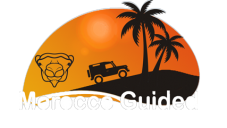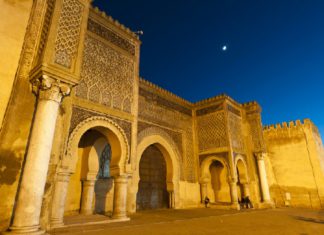Languages:
Traveling to Morocco requires some basic ideas for knowledge. Morocco is a land of many languages. Arabic and Berber or Tamazight (the mother tongue of the country’s first people) are the two official languages. French is still commonly used throughout the country too. It’s certainly helpful to know a few phrases in French so you can navigate, especially in transportation hubs; in addition to some knowledge of English language which is used increasingly nowadays in Morocco.
Where to stay?
Choose a riad (a traditional Moroccan house with a garden or courtyard in the center) inside the walls of the city’s medina and close to its perimeter, so you don’t have to lug excessive baggage through the twisting streets. Another accommodation tip: choose a room on a floor that is close to ground-level: that’s where the wifi will be the strongest.
If you’re assisted by locals during your time in Morocco, a 10% tip is typical and greatly appreciated. This applies to tour guides, restaurant service, and even a particularly helpful stranger. If you visit a craftsman’s workshop, you’re not obligated to buy their wares, but a small tip is a good idea too.
Where to buy?
You’ll probably be tempted to buy spices from the colorful domes at the bazaars, but you may want to refrain. Purchasing your spices at the Berber shops is often better because these products have been properly packaged and not left out in the polluted air.
Visiting a Moroccan souk (market) is one of the most colorful experiences you can have during your visit. Narrow streets are lined with goods, and merchants encourage visitors to buy their wares. You can purchase everything from textiles to souvenirs to food products, but be prepared to break out your best bartering techniques.
When traveling to Morocco, the tourists can change their bills at the airport, which has similar rates to those offered in the town centers. Keep receipts from all exchanges. They’re a necessity for converting Dirham back to your own local currency prior to departure. Changing money in the streets is illegal, so always look for a Bureau de Change, a bank, or a hotel. As a note, hotels generally do not charge commission. Travelers should bring clean, crisp bills with no tears. Coming from Scotland, Northern Ireland, Australia, New Zealand, or Singapore? Leave your dollars at home — they’re not accepted for exchange in Morocco! Debit cards may be accepted in high-class establishments, shops, and restaurants.
Finally, don’t forget your camera! Morocco is a photographer’s dream, so be sure to bring extra batteries.
In case you are interested in visiting Morocco, our company Morocco Guided Travel offers you a range of tour packages around the country through this link:

